What to do if my cat has pneumonia?
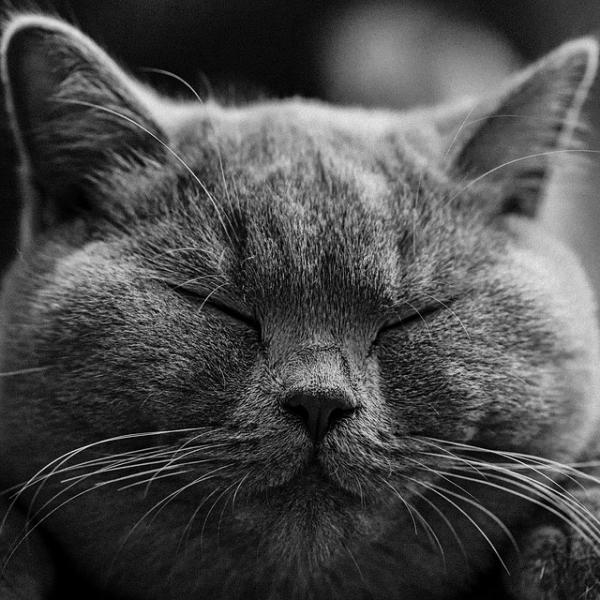
Cats are animals sensitive to the changes that occur in their environment, so it is necessary to be attentive to any alteration in their behavior and any strange symptoms that may show a situation that is causing stress or suffering from any disease or disease .
The fact that they are so sensitive demolishes the popular myth that the cat is an animal that has seven lives, since they can be affected by many diseases that also attack humans, in addition to those that are typical of felines.
That said, we’ll talk about pneumonia in cats. Keep reading and discover what to do if my cat has pneumonia in this article
What is pneumonia?
Also called pneumonia, it is a disease that attacks the lungs. It consists of inflammation of the pulmonary alveoli, and is extremely delicate in both humans and animals. Can cause pain due to the swelling of these vital organs, and it becomes deadly if not treated in a timely and appropriate manner. In addition, it is possible to get pneumonia if you are going through a picture of other respiratory diseases, and it is highly contagious for those around us.
Now, how does pneumonia affect your cat? As with humans, pneumonia it can be lethal for the felines. Not only because of the state in which leaves the lungs, but also because it is very common for the cat to refuse to try any food and drink water, so it falls into a severe dehydration box easily.
Although it can affect any feline, it is more common in young animals, because their immune system is not yet strong; in old animals, since they are weaker; or in felines in street situations, since they are exposed to all types of bacteria and contagious agents. What to do if my cat has pneumonia? How to proceed? Keep reading.
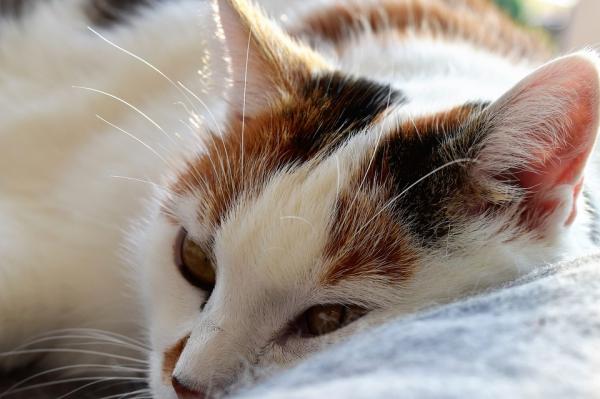
What are the causes of pneumonia in cats?
There are many reasons why your cat has contracted this disease, the most common of which is that we are in front of a bacterial disease, mostly caused by a virus called feline calicivirus. It is a virus of the respiratory tract, which if not treated in time can lead to the development of pneumonia.
However, the disease can also appear due to other factors, such as the presence of a foreign body that the cat has aspirated and that has lodged in their airways. It also contributes to the contracted if you give your cat a poor diet , without the necessary nutrients for its healthy development.
In addition, the presence of other diseases, such as viral leukemia, make your cat more prone to pneumonia at some point in their life. Similarly, sudden changes in temperature, cold and air currents, and situations that cause stress in your furry friend, such as the arrival of another animal at home, a move or change in the location of objects the house, because the stress derived from these facts makes it more vulnerable to getting sick.
That is why you should be aware of any unusual symptoms or behavior to consult immediately with your veterinarian.
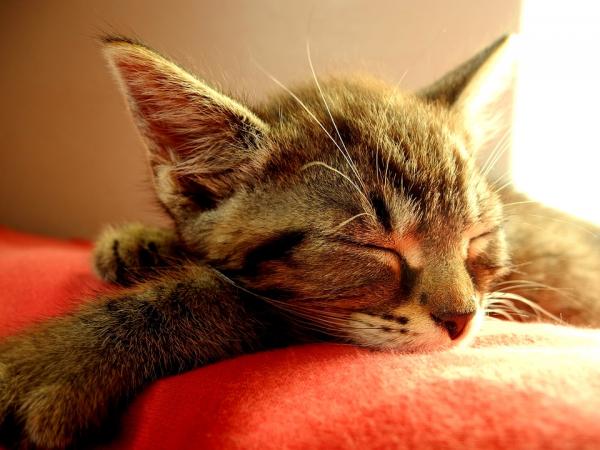
Types of feline pneumonia
There are two types of feline pneumonia, and they are classified according to the cause that causes them. These types are the following:
- Pneumonia due to inhalation: Some foreign object is embedded in your cat’s airways, either as a result of vomiting or the breathing of some gastric acid. Because of this your cat’s lungs swell, so he needs medical attention. The most usual thing is that oxygen is given to help him breathe and some antibiotic.
- Bacterial pneumonia: It is characterized by the accumulation of fluid in the alveoli and lungs, product of contagion with some bacteria or fungus. If not treated in time, it can be complicated by the accumulation of pus in the blood, due to the development of other bacteria because the immune system is so vulnerable.
What are the symptoms of pneumonia in cats?
You must be very aware of any of these symptoms:
- Coughing and sneezing
- Fever
- Sounds when breathing
- Lethargy
- Weakness
- Loss of appetite and weight
- Difficulty to swallow
- Bluish skin
- Accelerated breathing
If you observe any of these symptoms, you should take your feline friend to the veterinarian immediately, so that he can be checked and treated, and rule out any serious illness.
How is the diagnosis made?
The veterinarian will perform several tests on your cat, including a X-ray of your chest area and lungs, since this will allow you to determine the severity of the infection and the state in which the organs are located.
It will also extract samples of the contents of the lungs, to analyze if it is a case of pneumonia caused by a bacterium and, if so, to detect which one it is. If pneumonia is suspected by inhalation, a urinalysis and esophageal analysis will be performed using an endoscope.
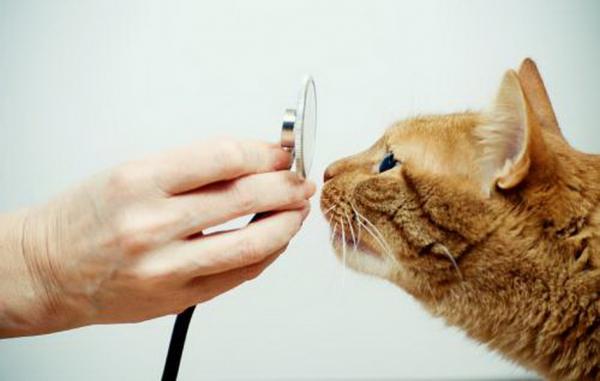
Treatment and care at home
When determining that you are indeed facing a case of feline pneumonia, it is most likely that your hairy must remain hospitalized a few days. If you have a lot of trouble breathing, oxygen will be applied. The treatment will be based on antibiotics, mainly penicillin or amoxicillin is prescribed. It is also possible that they recommend a diuretic, to eliminate the accumulated fluid in the respiratory tract.
At home, you should keep it hydrated all the time, helping it if it is not able to drink by itself. Repeat this care with food, crushing it and providing it with a syringe if necessary, since felines decompensate very quickly when they stop eating. To make it easier, you can book for him canned food or some food that you really love, and try to encourage it to eat alone. If you do not, use the aforementioned assisted feeding.
In the same way, it is important to keep it warm and isolated from other pets, to avoid being disturbed and to prevent possible infections to the rest of the animals. The treatment recommended by the veterinarian must be followed to the letter, in terms of medicines, hours to be taken and quantities of each. Everyone who lives with a cat knows how difficult it can be to provide some medication, but you must be ingenious to contribute to its rapid recovery. If it is syrup, try to give it little by little with a syringe, introducing the liquid to the sides of the mouth. If it is pills or tablets, hiding them in food is a good option if you are able to eat alone; otherwise, you will have to place it delicately in your throat and distract it to swallow it. No matter what you try, the important thing is that your cat takes your medicine, but remember to be sensitive so as not to scare or hurt him.
The chest massage They are recommended in cases of respiratory diseases, consult your doctor about how to perform them. Let the feline rest and sleep, so he can regain his strength faster. Stay tuned for any change or deterioration.
Always remember to consult everything with your veterinarian and not self-medicate your pet.
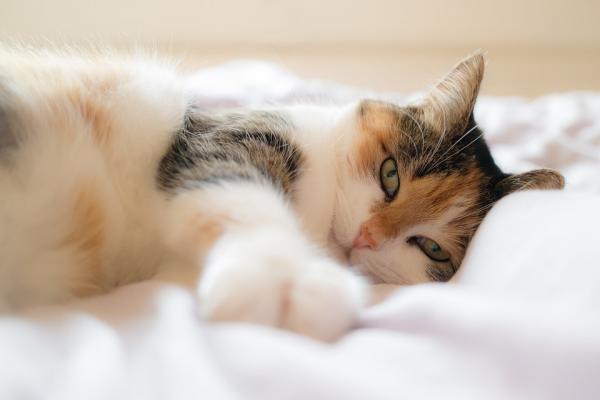
This article is merely informative, in .com we do not have the faculty to prescribe veterinary treatments or make any kind of diagnosis. We invite you to take your pet to the veterinarian in case of any type of condition or discomfort.
If you want to read more articles similar to What to do if my cat has pneumonia?, we recommend that you enter in our section of respiratory diseases.


